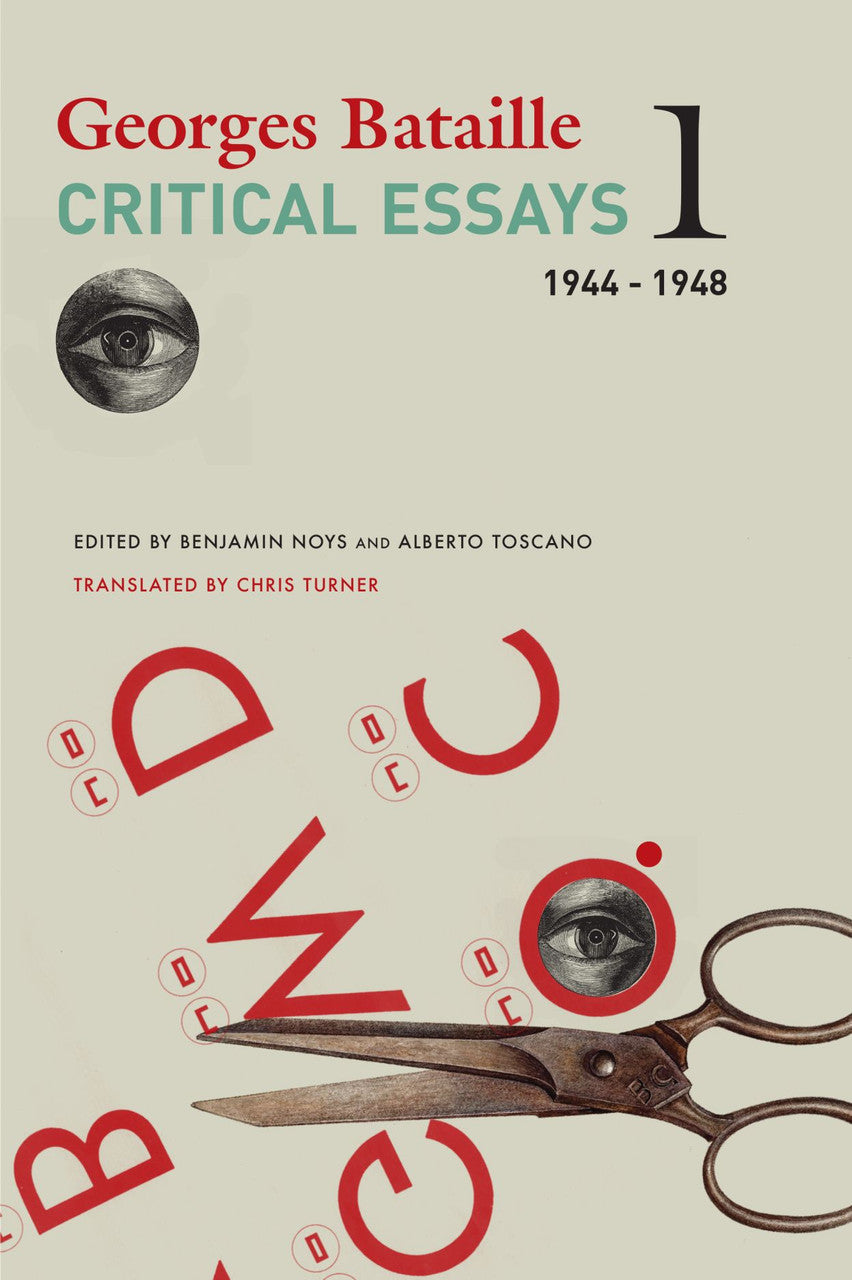Critical Essays, 1944–1948
Critical Essays, 1944–1948
- Description
- Reviews
- Details
- Shipping
This first book in a three-volume collection of Georges Bataille’s essays introduces English readers to his philosophical and critical writings.
In the aftermath of the Second World War, French thinker and writer Georges Bataille forged a singular path through the moral and political impasses of his age. In 1946, animated by ‘a need to live events in an increasingly conscious way,’ and to reject any compartmentalization of intellectual life, Bataille founded the journal Critique. Adopting the format of the review essay, he surveyed the post-war cultural landscape while advancing his reflections on excess, non-knowledge, and the general economy. Focusing on literature as a mode of sovereign uselessness, he tackled prominent and divisive figures such as Henry Miller and Albert Camus.
In keeping with Critique’s mission to explore the totality of human knowledge, Bataille’s articles did not just focus on the literary but featured important reflections on the science of sexuality, the Chinese Revolution, and historical accounts of drunkenness, among other matters. Throughout, he was attuned to how humanity would deal with the excessive forces of production and destruction it had unleashed, his aim being a way of thinking and living that would inhabit that excess.
This is the first of three volumes collecting Bataille’s post-war essays. Beginning with an article on Nietzsche and fascism written shortly after the liberation of Paris and running to the end of 1948, these texts make available for the first time in English the systematic diversity of Bataille’s post-war thought.
‘His reflections on fascism and the moralities of violence and mistruth are especially relevant today. This volume and the two to follow promise to be of great value to scholars in the fields of literary history, politics, and the history of ideas.’—M. Uebel, Choice.
- ISBN: 9781803090603
- Pages: 400
- Size (inches): 6 x 9
- Format: Hardback
- Publication Year: 2023
- Series: The French List
- Category: Literary Criticism and Philosophy
If you are ordering from India, your order will be shipped from Seagull Books, Calcutta. Shipping is free for orders above ₹999.
If you are ordering from the US or the UK or anywhere else in the world, your order will be shipped from the University of Chicago Press' distribution centre, Chicago.
Please note: For customers paying in currencies other than Indian rupee or US dollar, prices will be calculated according to the currency conversion rate at the time of purchase and may vary from the printed price.
Couldn't load pickup availability
Share

About Us
Seagull Books (estd 1982) has been crafting books with an eye to both exceptional content and radical design. What began highly risky business of publishing books-books on alternative cinema, philosophy, culture-continues to be a passionately felt need of the hour: manuscripts that need to see the light of day, instinctive and theatre, visual arts, to reach a readership, to stimulate minds, to change outlooks. Read More
Subscribe to our newsletter
- Choosing a selection results in a full page refresh.
- Opens in a new window.

